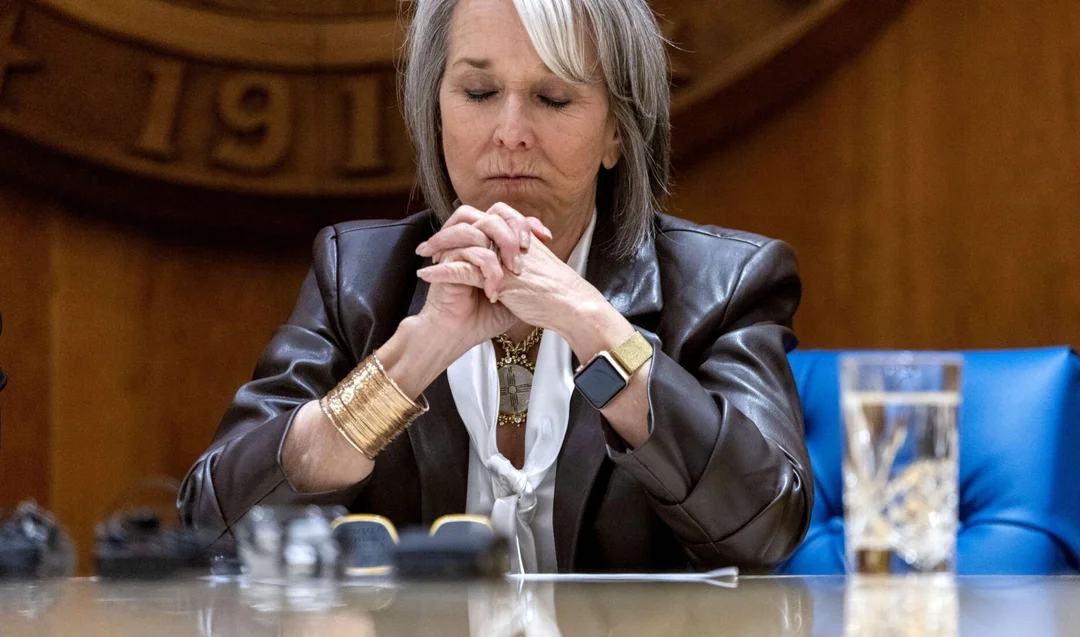
Governor Lujan Grisham’s Vetoes Stir Debate in New Mexico Over State Priorities and Symbolic Legislation
In a legislative session punctuated by both levity and urgency, New Mexico Governor Michelle Lujan Grisham delivered a forceful message to lawmakers by vetoing a bundle of bills ranging from whimsical new state symbols like the official state bread—a tortilla—to measures aiming at transparency and public safety. Her actions have sparked conversations across the state about the balance between celebrating local culture and addressing pressing challenges.
The most headline-grabbing veto was the snub of a proposal to make the tortilla, championed by fourth-grader Adaline McIntosh, the official state bread. The measure had sailed through the legislature with unanimous support, celebrated as a cultural milestone and a nod to culinary tradition. But in her veto, Governor Lujan Grisham stressed that, while she relishes New Mexico’s unique customs, “the question should not be how many more symbols we can collect—but whether we are meeting the moment with the gravity it demands.”
In her pointed veto message, she reminded lawmakers, “We are living in perilous and unprecedented times. The stakes for our state have never been higher.” This sentiment resonated across other states as well, with legislatures in Georgia, Oregon, Tennessee, and California all entertaining or enacting measures to adopt symbolic foods, creatures, and even mythical beings as state icons—such as California’s spirited push to name Bigfoot the official state cryptid and solar energy the official renewable energy source.
However, the governor’s unusually stern approach was not simply reserved for tortillas and license plates. On her final day for legislative action, Lujan Grisham vetoed 16 bills, including transparency measures on lobbying activities, environmental and wildfire preparedness funds, the creation of Slot Canyon Riverlands State Park in southern New Mexico, as well as bills for expanding health services, digital accessibility, and veterans’ tax exemptions.
Her rationale echoed a constant refrain: many initiatives, while well-intentioned, either duplicated existing efforts, lacked sufficient funding, or sidestepped more urgent issues. For example, she criticized the wildfire suppression measure for relying on slow federal reimbursements, and she argued that the digital accessibility bill would disrupt processes her administration already implemented. “In a time of extraordinary challenges, New Mexicans need discipline and urgency from their elected officials. What they received this session was far too often the opposite,” she wrote.
The governor’s decisions have not gone unchallenged. Advocates for the proposed Slot Canyon Riverlands State Park expressed disappointment, citing both recreational and economic benefits that would have flowed to southern New Mexico. State Representative Nathan Small lamented the missed opportunity, while others, like Rep. Sarah Silva, decried the veto of lobbying transparency as a blow to accountability in state government.
Beyond New Mexico, the debate underscores a national tension: as lawmakers seek unity and cultural pride through official symbols—a trend that has seen everything from Nashville hot chicken to multi-pointed Moravian stars proposed—governors and fiscal stewards are increasingly weighing symbolism against urgent societal needs, especially during times of crisis.
As New Mexico’s legislative dust settles, residents are left weighing the value of symbolic representation versus focused governance. Are state symbols a harmless celebration of heritage, or a distraction from more critical reforms? Readers are invited to share their perspectives: Do you think symbolic laws are important, or should lawmakers keep their focus on core issues? Leave your thoughts below and join the debate on New Mexico’s priorities.